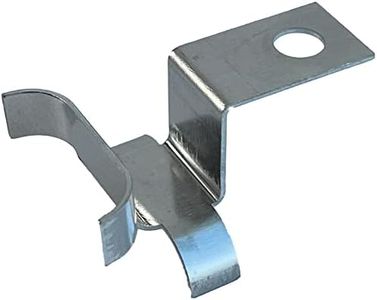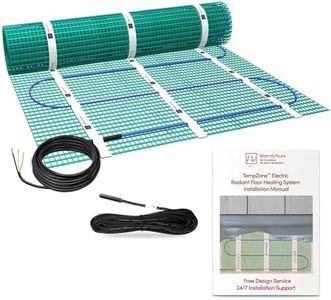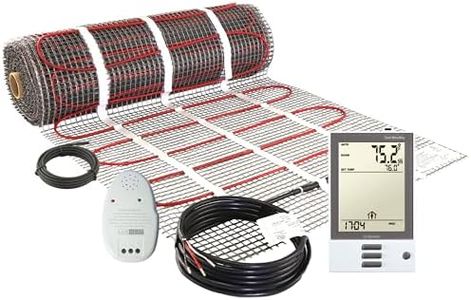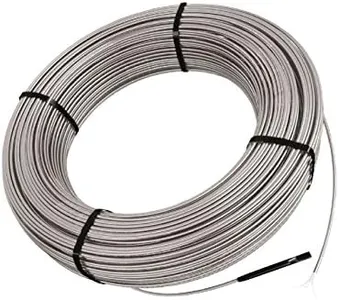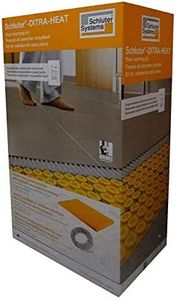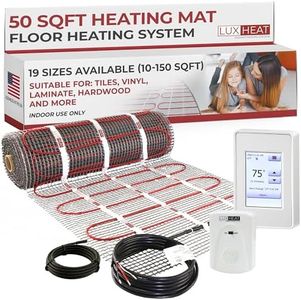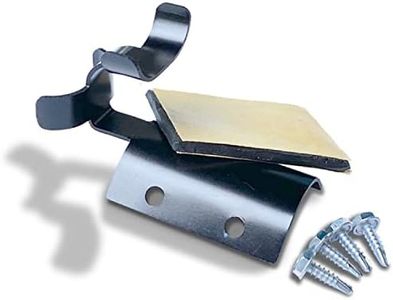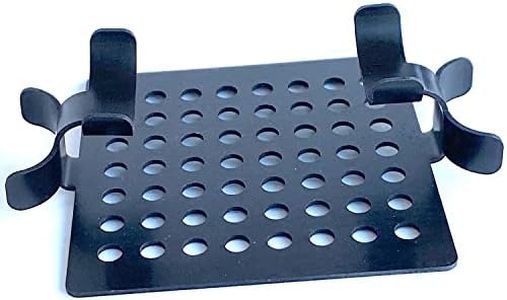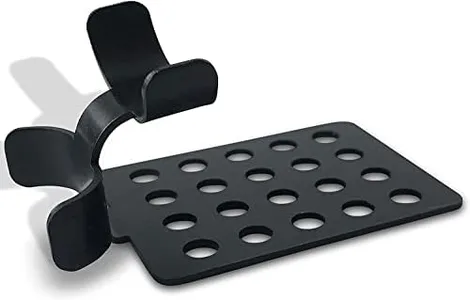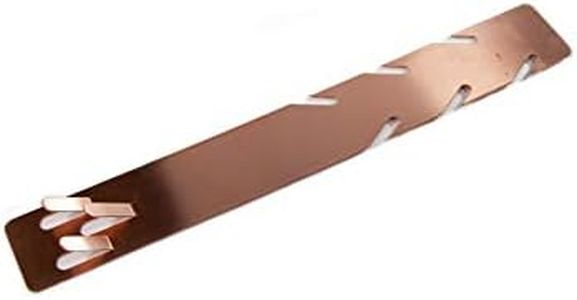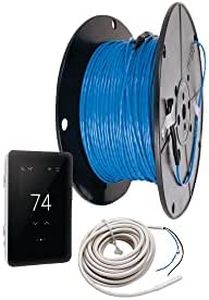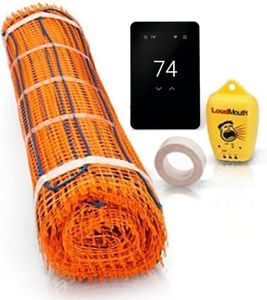10 Best Heated Floors 2026 in the United States
Our technology thoroughly searches through the online shopping world, reviewing hundreds of sites. We then process and analyze this information, updating in real-time to bring you the latest top-rated products. This way, you always get the best and most current options available.

Our Top Picks
Winner
WarmlyYours Heated Floor System 156 sqft - Electric Heated Floor Mat for Fast, Even Warmth Under Tile, Stone – Ideal for Bathroom - 3x52 ft 240V (TempZone Flex)
Most important from
47 reviews
The WarmlyYours Heated Floor System is an electric underfloor heating mat designed primarily for indoor use on tile and stone floors, making it especially suitable for bathrooms or kitchens where cold floors can be uncomfortable. Its ultra-thin profile (just 1/8 inch thick) allows for easy installation directly into thinset without raising the floor height, which is beneficial for avoiding complicated remodeling. The mat is flexible, so it can fit various room layouts.
The system delivers 15 watts per square foot, ensuring fast and even warmth with no cold spots across the 156 sq.ft. coverage area. It operates at 240 volts and includes a floor sensor for temperature control, while a compatible thermostat will be required for precise adjustments. Energy efficiency is addressed by the system being low in electromagnetic fields (EMF) and noiseless, meaning it runs quietly and safely without wasting energy. The product is UL listed for wet locations, reassuring safe bathroom installation. The 25-year warranty and lifetime support highlight its reliability and durability.
The heating mat works well under tile, stone, and nailed hardwood, offering flexibility for different rooms. It is designed for indoor use and may not suit all flooring types. The system comes as a fixed-size mat (3 feet by 52 feet), so you will need to ensure it fits your floor space or plan to use only part of the mat. Installation requires embedding it in thinset, which may require professional help if you are not comfortable with DIY. This heated floor mat is a strong choice for adding fast, reliable warmth to tile or stone floors, especially when ease of installation and safety are priorities.
Most important from
47 reviews
LuxHeat 180 Sqft Mat Kit, 240v Electric Radiant Floor Heating System for Under tile, Stone and Laminate. Kit Includes Alarm, Heated Floor Mat, OJ Microline Programmable Thermostat with GFCI & Sensor
Most important from
15 reviews
The LuxHeat 180 Sqft Mat Kit is a comprehensive electric radiant floor heating system designed for use under tile, stone, and laminate flooring. One of its main strengths is the ease of installation, thanks to the self-adhesive heating mat that can be cut and turned as needed without compromising the heating wire. This makes it adaptable to various room shapes and sizes.
The kit includes a programmable thermostat with intuitive controls, offering features like dual sensing, power logging, and a child lock, which ensures both safety and efficiency in operation. The embedded GFCI provides added protection against electrical faults, making it a reliable choice for wet locations. Energy efficiency is a notable benefit, with a 7-day program schedule that lowers operating costs while maintaining comfort. The 240-volt system delivers a significant heating output of 2160 watts, ensuring effective warmth distribution across 180 square feet.
Users need to embed heating wires in a self-levelling underlayment or mortar for proper installation, which might require professional assistance. The product’s durability is supported by a 25-year limited warranty, and it is certified safe for wet locations, ensuring long-term reliability. The main drawback could be the need for careful installation to avoid damaging the heater wires. Additionally, its size and weight might be cumbersome for some users. This kit is ideal for those seeking a high-quality and efficient heated floor system with a range of advanced features and strong customer support.
Most important from
15 reviews
Schluter-Systems DITRA-HEAT (120V) Floor Heat Cable, warms 134 sq ft [DHEHK120134] adaptable to any layout, adds comfort to any room, quickly and easily installs into membrane before tile/stone
Most important from
37 reviews
The Schluter-Systems DITRA-HEAT (120V) Floor Heat Cable is a versatile heating system designed for floor warming, suitable for various room layouts. This product heats up 134 sq ft and is compatible with tile and stone floors, adding comfort and luxury to your living space. The cable is installed into a membrane before flooring, making the installation straightforward.
With a heating output of 1700 watts and an energy draw of 14.2 amps, it provides strong and efficient heating performance. The package does not include batteries or a thermostat, which must be purchased separately to control the heating system. The item dimensions and weight are manageable, making it relatively easy to handle during installation.
Although it ranks at #208 in Heaters & Heater Accessories, its specific use for floor heating and compatibility with tile/stone flooring makes it a niche product, ideal for those looking to enhance their floor comfort. This product is best suited for homeowners looking for a reliable and easy-to-install floor heating system for tile or stone floors in various room layouts.
Most important from
37 reviews
Buying Guide for the Best Heated Floors
Heated floors, also known as radiant floor heating, are a luxurious and efficient way to keep your home warm. They work by circulating warm water or electric heat through a network of pipes or wires installed beneath your flooring. When choosing heated floors, it's important to consider several key specifications to ensure you select the best system for your needs. Understanding these specifications will help you make an informed decision and enjoy the comfort and efficiency of heated floors in your home.FAQ
Most Popular Categories Right Now
